- And don’t forget, it all started with this man, “Michiyo Heike.”
- Michiyo Heike Profile
- Debut single released on November 5, 1997 [GET
- Second single released February 15, 1998 [Graduation – TOP OF THE WORLD].
- 1st album released March 25, 1998 [Teenage Dream
- 3rd single released on July 1, 1998 [Daikirai].
- 4th single released on October 25, 1998 [But I Love You Too Much
- 5th single released February 10, 1999 [I want to be your dream].
- 6th single released on July 28, 1999 [scene
- 7th single released on May 17, 2000 (One Room Summer Love Story)
- 8th single released August 9, 2000 [Power of Love
- 1st best album “For ourself~Single History~” released on September 13, 2000
- 9th single released on February 7, 2001.
- 10th single released November 7, 2001 [Proposal].
- 11th released on June 5, 2002 [MURASAKI KIKIBU].
- Michiyo Heike Profile
And don’t forget, it all started with this man, “Michiyo Heike.”
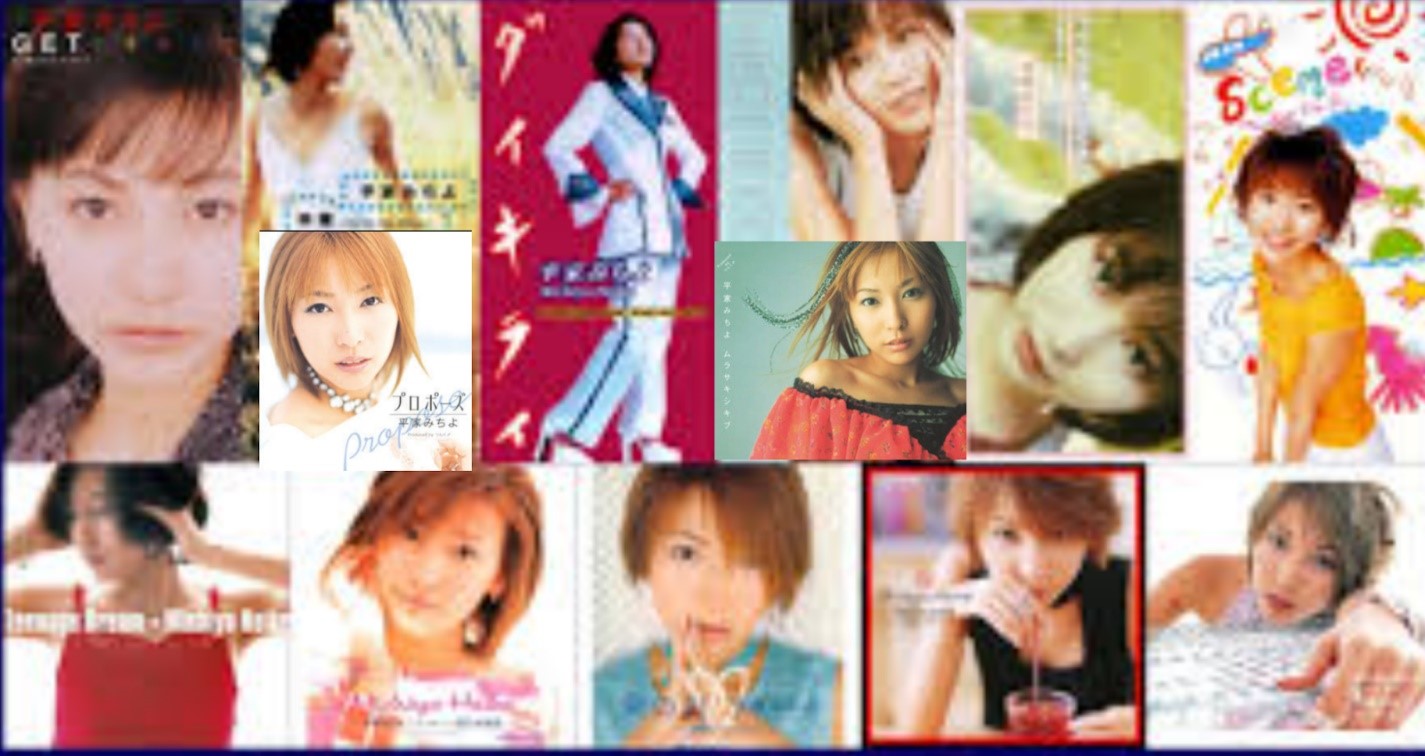
Michiyo Heike Profile
Born on April 6, 1979 in Mie Prefecture, Japan. She is now retired from show business.
Released 11 singles and 2 albums during her tenure at Hello! Project.
Project! Project,she debuted as a solo artist and participated in several shuffle units.
Project and participated in several shuffle units.
How did she make her debut?
In 1997, she won the “Sharan Q Female Rock Vocalist Audition” on TV Tokyo’s “ASAYAN”.
Female Rock Vocalist Audition” on TV Tokyo’s “ASAYAN” in 1997, and won the Grand Prix.
The group that was not selected in this audition was “Morning Musume。 I was not very much interested in myself from the time of my debut until around the year 2000.
I didn’t know much about Ms. Heike from her debut until around 2000.
I recognized her for sure at the shuffle in 2000 and started to support her from that year’s singles.
Now I buy each CD and keep them in a safe place. Hello! Project for about 5 years.
Introduction of Songs
Debut single released on November 5, 1997 [GET
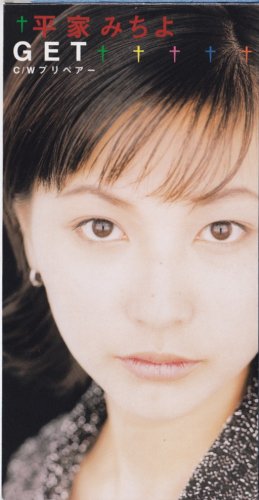
At that time, CDs were sold in a smaller size called 8cm CD.
The song was written by Tsunku-san and produced by Hatake-san.
A view event was held at the Nippon Budokan soon after its release.
The number of days between the debut and the Nippon Budokan is the shortest in the history of Hello! Project history. Project history.
(Excluding the unveiling of new members, etc.)
The debut was a very spectacular one. The song also reached No. 24 on the Oricon Weekly Chart!
The title of this song [GET] made me think that it was about catching something, but in the end it was not.
And it did.
The main character is free to have fun, and when he finally meets her, he says, “See you later,” even though he came out without telling his family.
I’ve come out of the house without telling him, but he just says, “See you later”.
This song conveys the strong desire to say “Suki” in such a situation.
Unlike Morning Musume。 Unlike Morning Musume, ZARD, they were initially selling their songs in a style that did not appear on music TV shows.
I was not in a music program like ZARD at first.
Second single released February 15, 1998 [Graduation – TOP OF THE WORLD].
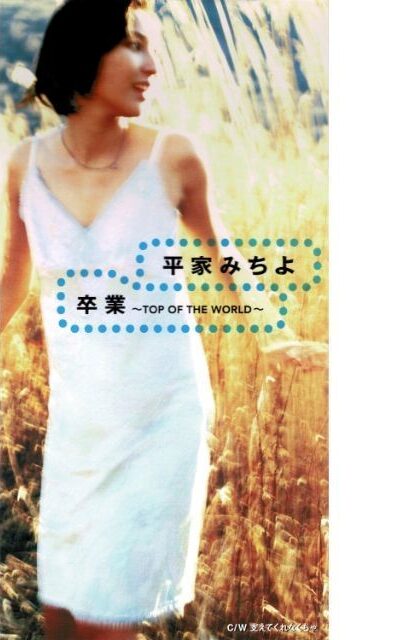
This song was also produced by Sharan Q and covered by the world famous “Carpenters”.
and a cover song by the world-famous “Carpenters”.
Japanese lyrics by Makoto Sharan Q
It was #35 on the Oricon Weekly Chart, about half the sales of the previous album.
album release in April, and it became the lead song of the album.
1st album released March 25, 1998 [Teenage Dream
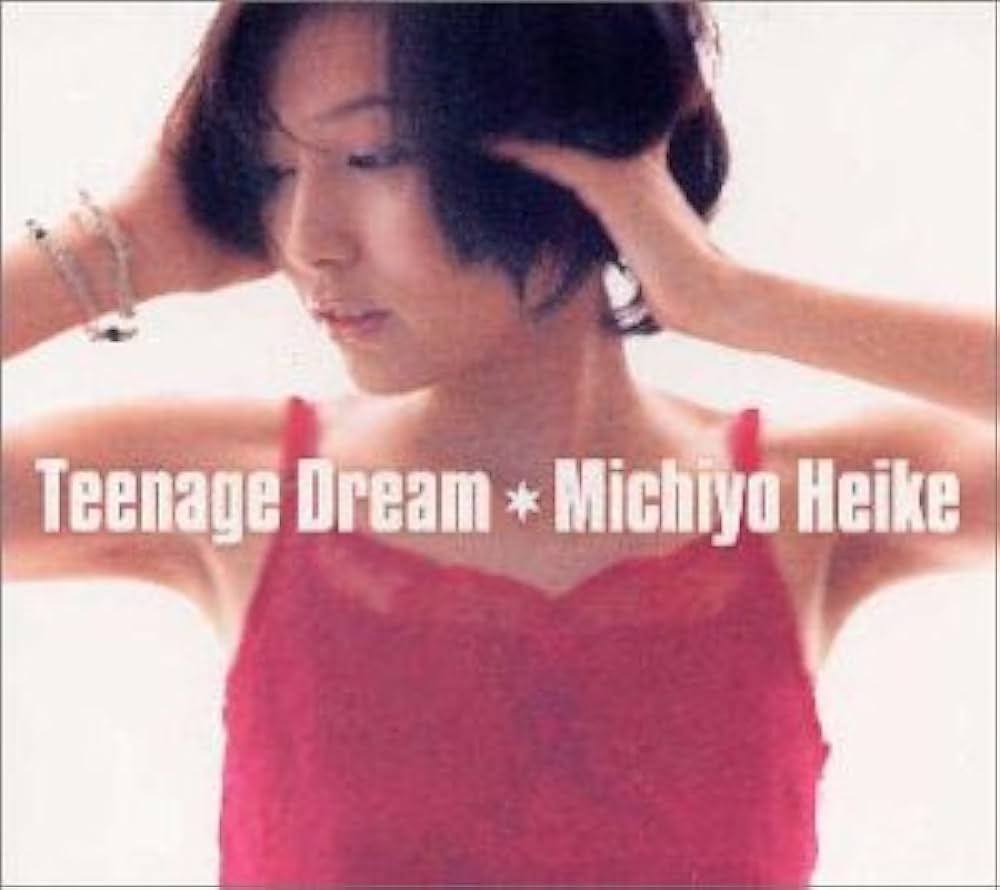
This album contains 11 songs including the debut single “GET” and “Graduation ~TOP OF THE WORLD~”.
It contains 11 songs in total, including the instrumental of the album title “Teenage Dream” and “Start!
It was a limited first edition and came in a 3-back square case. As the title suggests, this is such a work filled with teenage dreams.
3rd single released on July 1, 1998 [Daikirai].
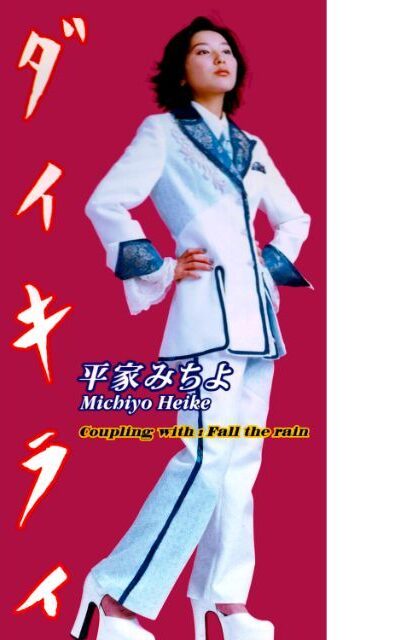
This song was released in the summer, so the words “Hanabi” and “Natsu no Arashi” (summer storm) were included in the title, and the music was rocking and cool.
The main character is a girl who was dumped by the person she loves and is in shock, but her high pride prevents her from understanding the situation. However, she wants to forget him, so she says to herself “Daikirai” and tries to look forward to the future.
It was ranked No. 50 on the Oricon Weekly Chart, down from the previous release.
4th single released on October 25, 1998 [But I Love You Too Much
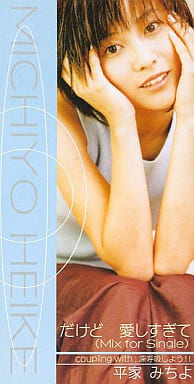
The opening song of “Morning Detective. The main character of the movie was also Morning Musume。 The main character of the movie also appeared with Morning Musume。
The album version of this song was released on September 30, 1998, before the single version.
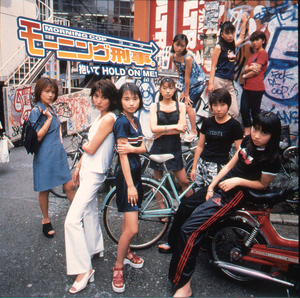
Is it a continuation of the previous album? The title of the song is a continuation of the previous song, but it is a work that looks at the love story that has ended.
5th single released February 10, 1999 [I want to be your dream].

This one is not as strong rock style as the previous ones, but a gentle rock style with a CD jacket as close as a debut single on the side.
The main character controls the dreams of the person he loves, so I won’t show you nightmares! the song says.
The music video also uses colorful balloons, making it a cute song.
Released on April 26, 2000 [Pucci Best].
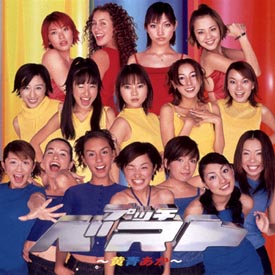
The fact that the song is included in this album may make it known to a wider audience. I thought it would be a good idea to include it in the video.
The video clip collection of the song is also included in the video, so you can enjoy the video as well.
6th single released on July 28, 1999 [scene
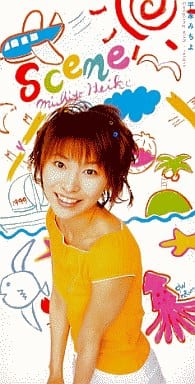
This is the first single with lyrics written by Michiyo Heike, and the CD jacket has a cute handwritten design.
The music video features a scene on the beach.
The music video features a scene on a beach, and the protagonist is not a person, but a scene, as is the case in many heartbreak songs.
The story is about a lover who comes here to be united with the scenery seen from “this place”.
The production of “Hatake” ended with this work, and “Tsunku” started to produce the next work.
Morning Musume。 However, from this point on, an event occurred that made Morning Musume a household name.
March 8, 2000 release of “Kiiroi okuu de BOOMBOOMBOOM” (Yellow Sky BOOMBOOM)
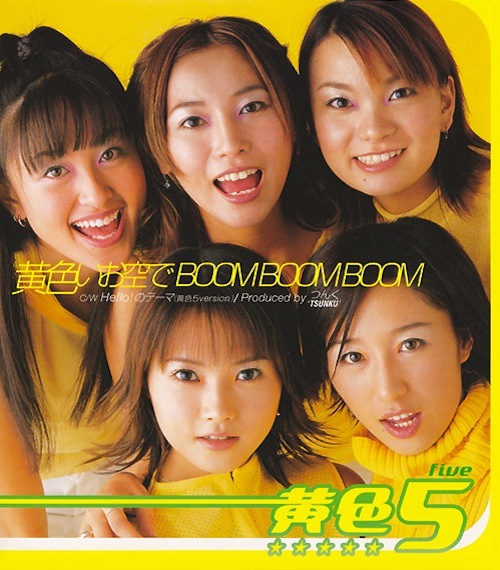
The first group shuffle in Halo Pro shook the world, and they appeared in many music programs at that time.
At this time, we were on TV Tokyo’s “Hello Morning! Morning. Morning” on TV Tokyo as a regular performer.
In the same vein, she released a single produced by TSUNKU in May!
7th single released on May 17, 2000 (One Room Summer Love Story)
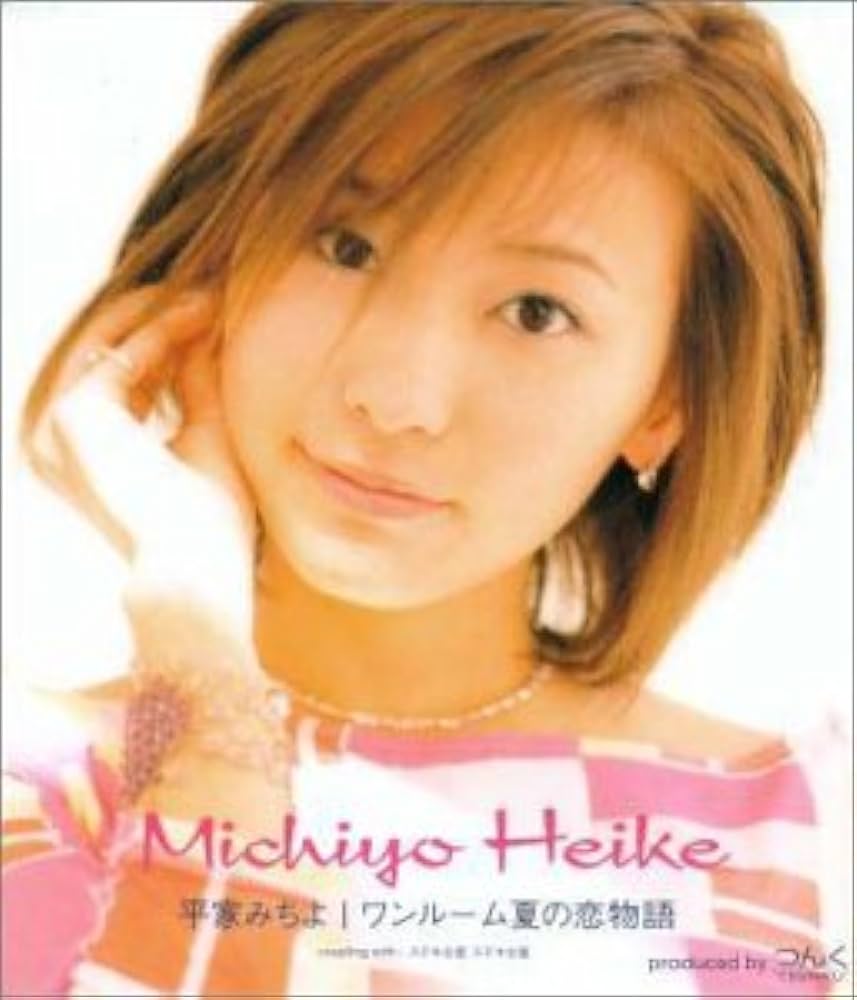
I officially got to know Michiyo Heike through this song. It was aired on TV Tokyo’s “Hello! Morning. Morning” on TV Tokyo, and I fell in love with it.
She sang at a green square with dancers in the music video, which looked like early summer with back-up dancers. According to the singer, she struggled to sing this song.
She said she struggled with her own habit because she had never sung a rock style, dance style song before.
The lyrics of the song, “I rented that video that I heard about,” are reminiscent of the era when rental stores were the mainstream.
The first CD came with a trading card as a bonus!
Here is the trading card I have, one of three types.
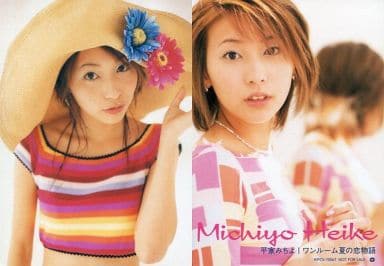
CD sales had been below 10,000 until the last album, but with this album, sales exceeded 10,000.
It was #26 on the Oricon Weekly Chart with 18,430 copies sold!
8th single released August 9, 2000 [Power of Love
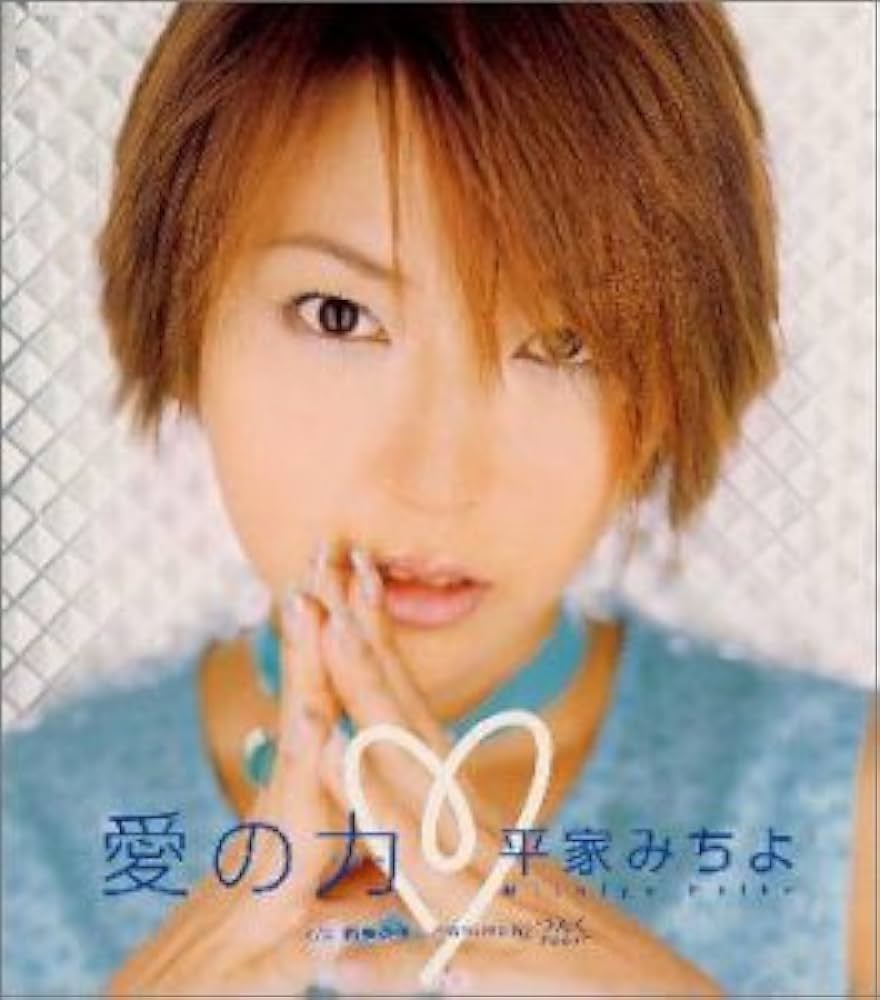
Michiyo Heike, who had gained momentum, continued to release singles in the summer.
This one is a very cool and danceable song, and the release event was even held.
In the lyrics, she sings “the power of love” many times, and the end of the chorus features her singing in a back voice!
This one also came with a trading card as an initial bonus.
I wanted to collect 3 cards, but I have only 1 card (lol).
(lol) I would like someone to give it to me.
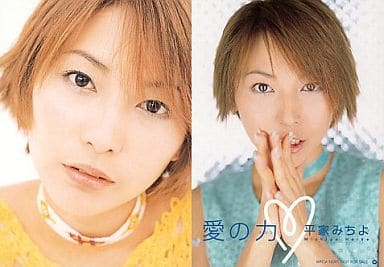
1st best album “For ourself~Single History~” released on September 13, 2000
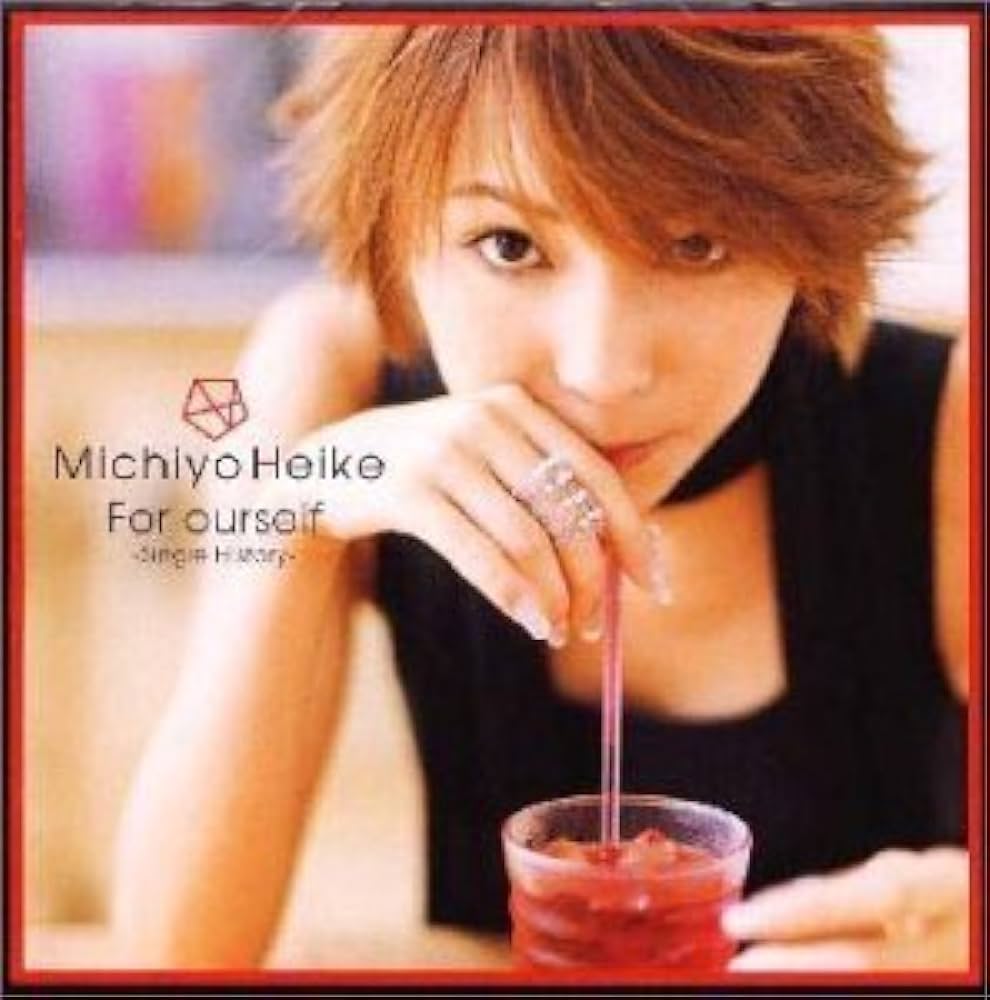
I was able to release my first best album. Our first album [Teenage Dream] sold better than our first album
Sales increased from the first album “Teenage Dream
Oricon Weekly Chart #23 with 12550 copies!
This album includes all the past singles and the first shuffle song “Kiiroi oozora de
Michiyo Heike’s solo version of “BOOMBOOMBOOM
myself (unreleased Track)” This is the first “Hatakesan” produced work in a long time with lyrics written by Michiyo Heike herself.
This is a work produced by “Mr. Hatakesan” after a long time, with lyrics written by Michiyo Heike herself.
The CD also comes with a picture label and is a very elaborate work. A trading card was also included as an initial bonus.
The CD also came with a trading card as a bonus for the first release.
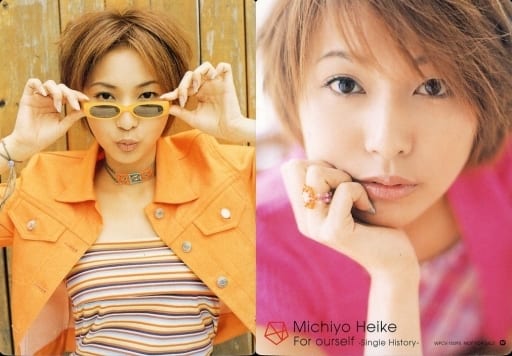
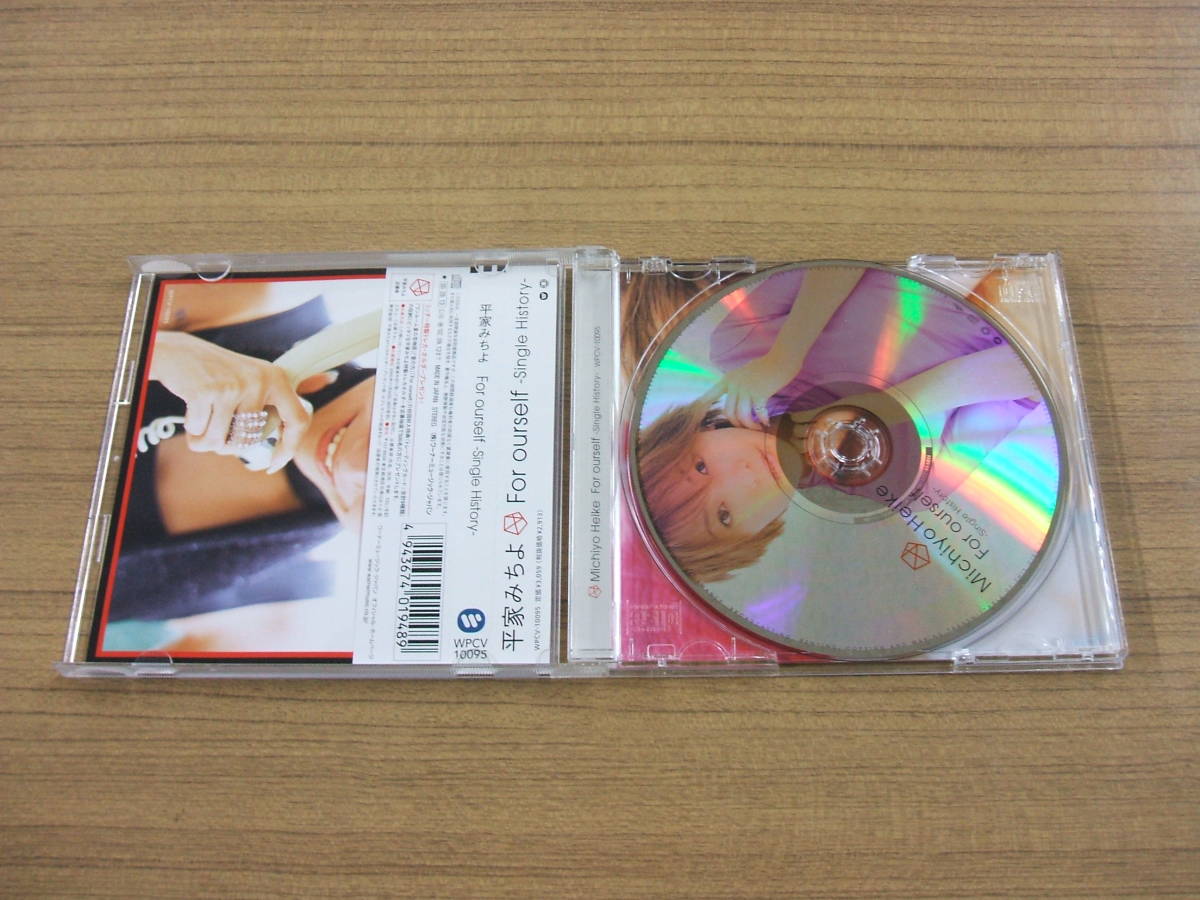
In the spring of 2000, Morning Musume。
In the spring, I performed in “Pinch Runner” starring Morning Musume。 In spring, she appeared as a relay runner in “Pinch Runner” starring Morning Musume。
She was also a back-up dancer for Morning Musume。 In 2001, a new Michiyo Heike appeared again.
In 2001, a new Michiyoshi Heike appeared.
9th single released on February 7, 2001.
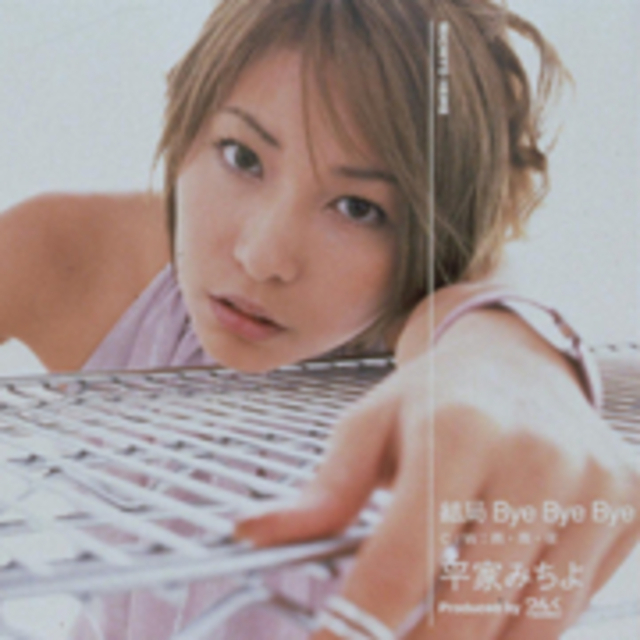
The most cool number in Michiyoshi Heike’s history, and the way she grabs one wrist in the chorus is easy to imitate.
It’s easy to imitate!
This is the first tie-up song in a long time and was chosen as the ending theme for “Quiz Aka-Ashame Ao Shame” broadcast by TV Tokyo.
and the music video was played at the end of the show.
There have been many songs about lost love in the past, but this song is about a very strong girl who was told goodbye by herself.
This song is about a very strong girl who moves forward from the tears she cried when she was told that she had to say goodbye to herself.
The first issue of the album comes with a trading card, which is a rare bonus.
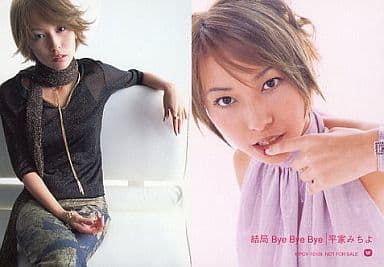
With this album, I left the record company “Warner Music Japan” and joined my company “zetima” as the last “Warner Music Japan” album.
This was the last work by Warner Music Japan.
Released on July 4, 2001 as “Summer Shuffle 7-person festival of Halo Pro” (Summer Rege. Rainbow) Rainbow]
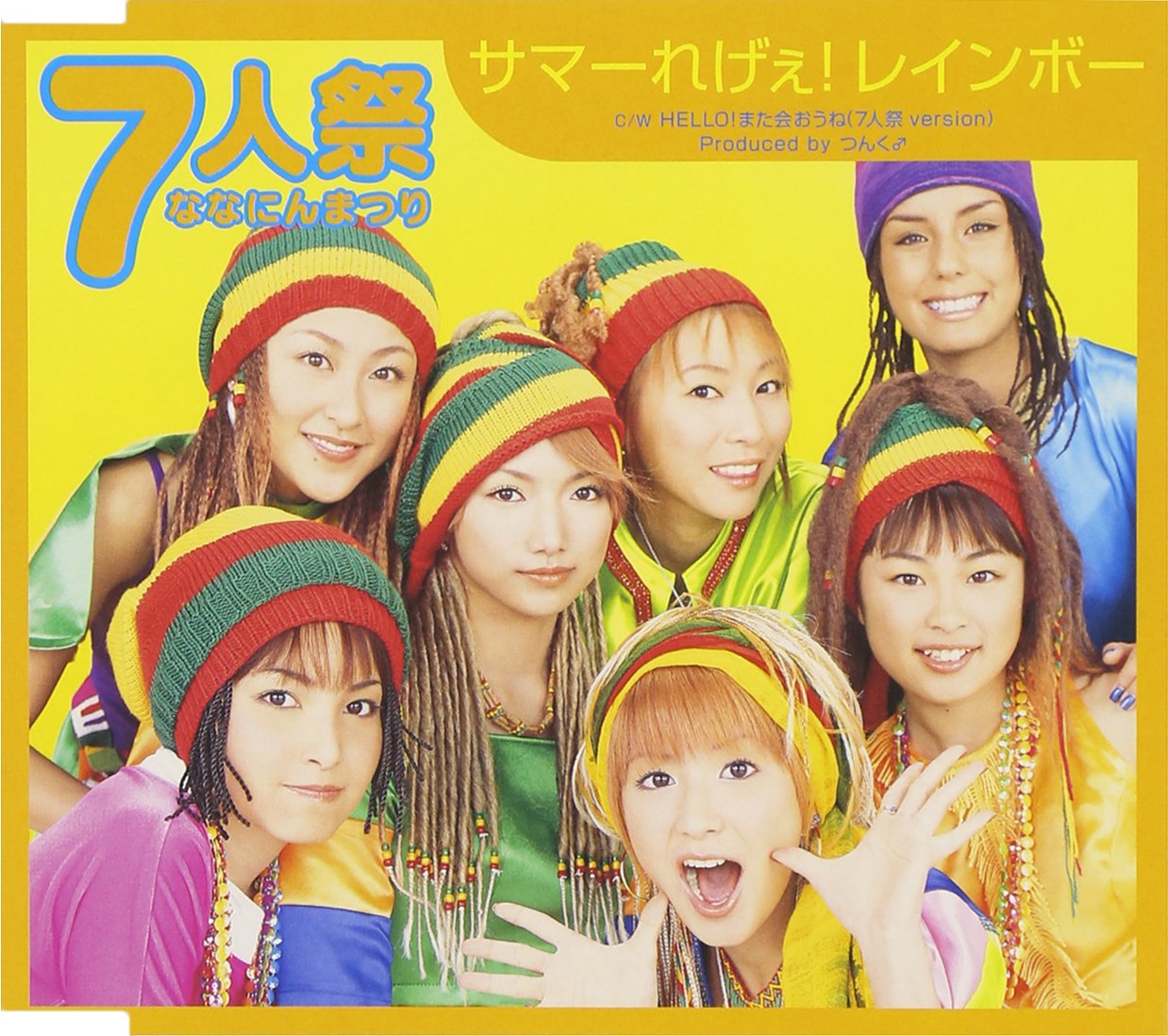
In this work, they played a big role in music programs, being called by name and being teased in a funny way!
10th single released November 7, 2001 [Proposal].
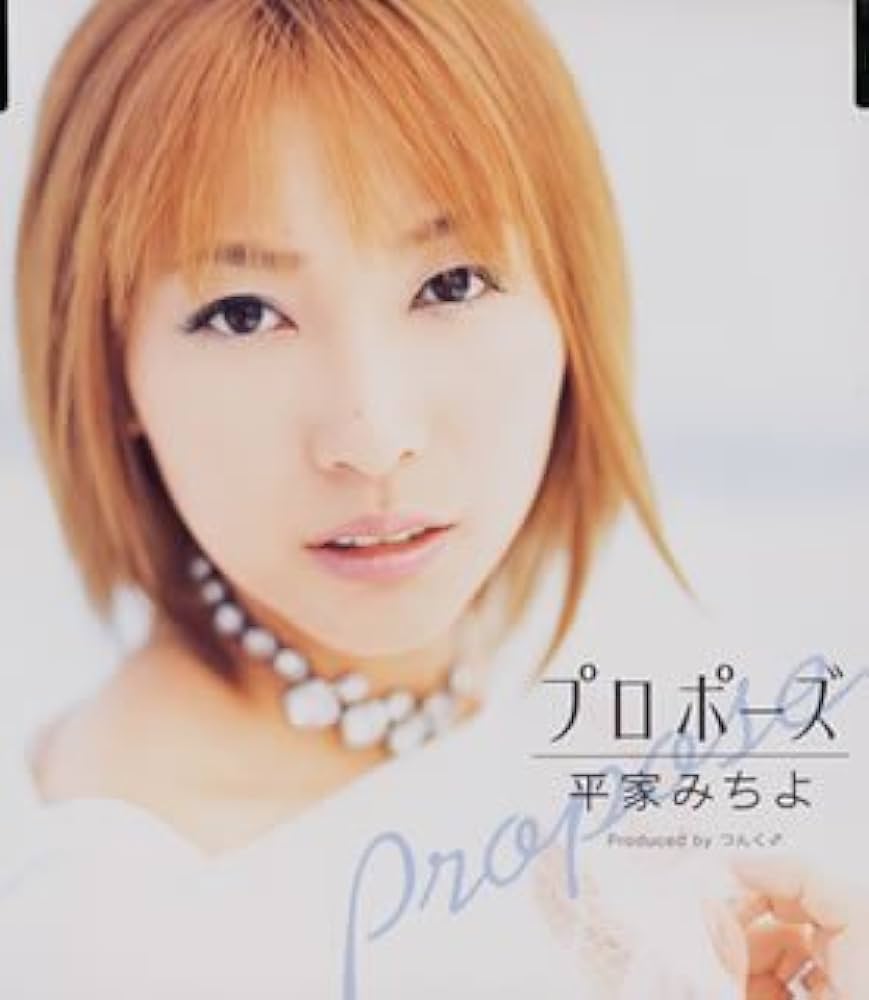
The music video is a drama and the song is a smooth medium tempo.
The lyrics describe a situation when he proposes to her, and the scene where they are facing each other at a desk in a store is depicted.
The lyrics depict a scene in which a man proposes to another man at a desk in a store. The lyrics depict a situation when he proposes to her.
This song has the strongest storyline, as if you are reading a diary.
The sales of this song are still in the 10,000sales range, which is not very high.
Although it is considered to be a small number, only two works produced by Tsunku-san have sold over 10,000 copies.
I am happy as a fan that the sales exceeded 10,000 in this way consecutively. I would like to see more sales, but I’m satisfied with just putting out great songs.
I hope it will sell more, but sometimes I am satisfied with just putting out great songs.
11th released on June 5, 2002 [MURASAKI KIKIBU].
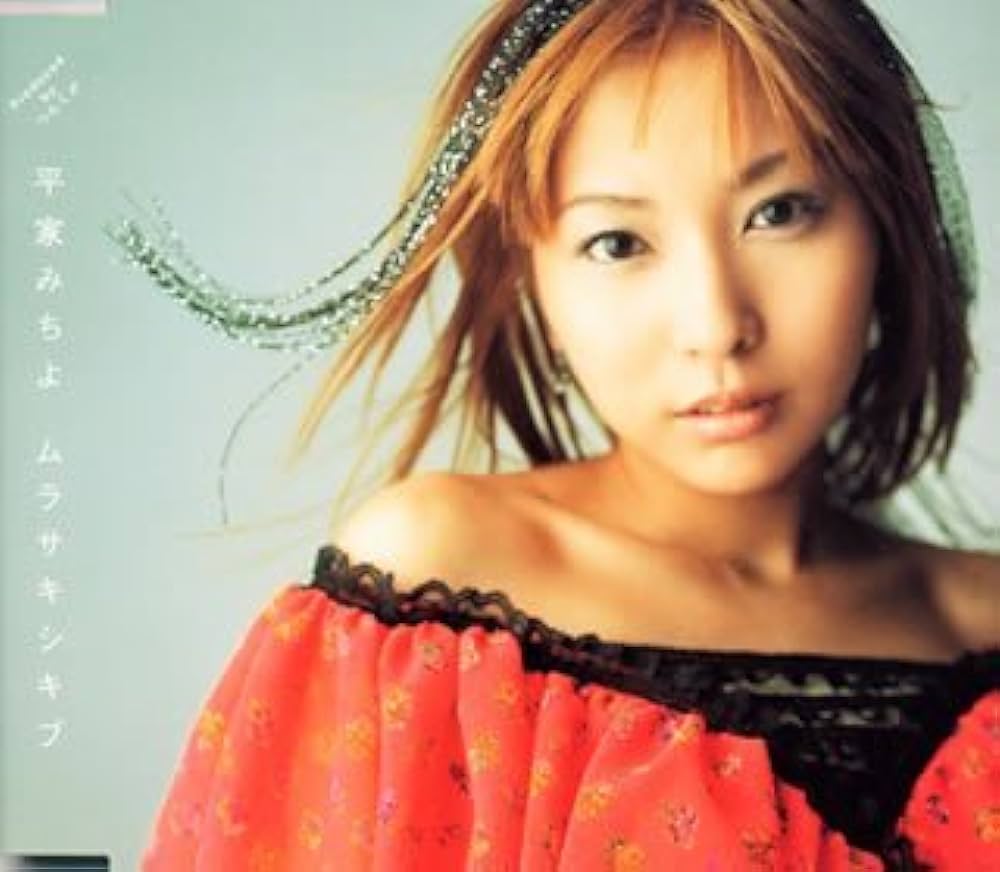
I love this CD jacket the most. Murasakishikibu” is the name of a Japanese person.
but the world view is not “Japanese”.
but the world view is not “Japanese”. He was dressed in an Arabian purple costume with his belly
The costume was very stylish and good looking. He was very stylish and good looking.
In the music video, there are two different costumes.
In the room with many bills, she was wearing a white one-piece dress.
This is the last solo single release by Hello! Project’s last solo single release.
This was the last solo single released by the Hello! Project was Hello! Project Summer Shuffle.
July 3, 2002 release “Are you happy?

In November 2002, she graduated from Hello! Project in November 2002 and resumed her solo career in 2004.
Project in November 2002 and resumed her solo career in 2004.
Michiyo Heike was a hard worker, guesting at the live performances of her juniors, but she sang wonderful songs.
She was the first solo singer in Hello! Project’s first solo singer.
Upfront’s official YouTube channel has uploaded two songs, “Proposal” and “Murasaki Kikibu”.
Pucci’s best DVD features “Daikiki” and “Murazakishikibu”.
In the Pucci Best DVD, music videos of “Daikirai” and “Anata no Yume ni Naritai” can be seen.
Please check out the music videos of “Daikirai” and “Anata no Yume ni Naritai” on Pucci’s Best DVD.
In the next issue, we will write about Morning Musume。 I will write about Morning Musume。’s golden period in 2002.
Please look forward to it!



